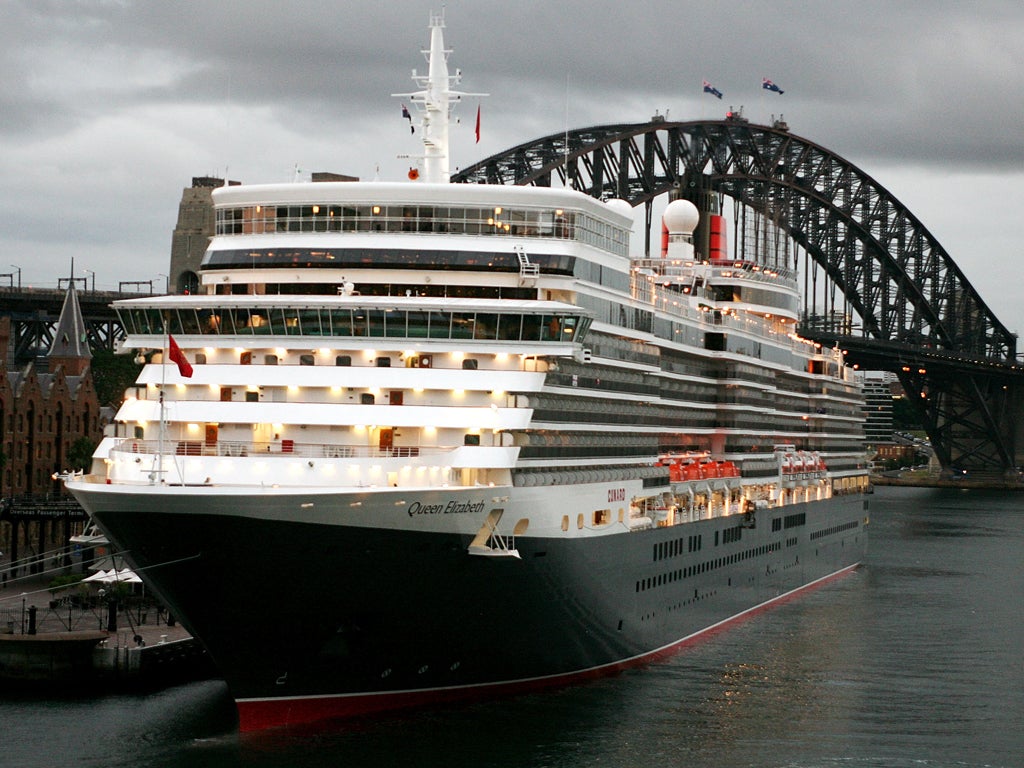The story of the QE2 symbolises the shifting wealth of the world
The West’s new role: supplier of luxury we can’t afford ourselves


Later this year the Queen Elizabeth 2 will set off on what really will be her final voyage.
On 18 October she will go from Dubai, where she has somewhat forlornly been moored since coming out of service in 2008, and will sail to a shipyard in China via Singapore and Hong Kong. There she will be converted into a luxury suite-only hotel before going to an undisclosed Asian port.
And there we have a story that encapsulates the changes that have swept the world economy in the years since she was launched in September 1967 on the Clyde. Most obvious is the decline of shipbuilding in Britain and the shift to air transport, for she was designed for the dual role of a North Atlantic liner as well as a cruise ship. The first role was inevitably pared back but the second boomed. She was not nearly as efficient as new ships, but could command a luxury premium that made it worthwhile to keep her in service.
So there are two backward-looking economic lessons: the decline in manufacturing in the UK and the boom in the global top-end leisure business. Now there is a third and a forward-looking one: it is that there is huge demand for European luxury products in Asia and in particular for an iconic product such as the QE2. The new rich of the world are in Asia and they want the goodies that the old world in Europe produces.
This is a story that is being repeated a thousand times. There is only one QE2 but there are millions of cashmere sweaters, and LVMH, the French luxury group, is spending €2bn on buying control of an Italian cashmere group, Loro Piana. We in Britain are benefiting from Asian demand for Jaguar Land Rover vehicles. Audi has just said it was considering starting full-scale manufacturing in India to meet demand there. There is a boom in wealth management across Europe.
Because this has all happened incrementally, we rarely sit back and take stock. When we do, we probably feel somewhat ambivalent about it. On the one hand, we in Britain and Europe inevitably welcome the fact that there is clearly something that we can do that other parts of the world can’t, or at least can’t yet. It is output and employment – not to be sniffed at given the difficult recovery we face. But it is also a reflection of our diminished place, for we are making the luxury items that most of us can’t afford. It is a reflection too, of rising inequalities more generally. Luxury goods are by definition for the few, not the many.
There is a partial parallel with the Europe of the Edwardian era, before mass production of consumer goods took off. Then we had a large proportion of the workforce making goods and providing services for the rich. Henry Ford transformed that with the moving production line, creating the age of mass consumer goods. The resulting higher wages started gradually to narrow income differentials. Two world wars and high taxation narrowed them further. Now in terms of differentials we have moved some way back towards the world of 100 years ago.
But it is only a partial parallel, because most of the wealth then was in Europe and North America rather than Asia. Every year that passes leads to a shift eastwards. There were plans to keep the QE2 in Britain but they came to nothing. There is not the market for a luxury floating hotel.
So while we should wave off the QE2 to a more dignified end than once seemed likely, let’s be aware that it does not just remind us that we don’t build ships like that any more. It symbolises the shifting wealth of the world.

Join our commenting forum
Join thought-provoking conversations, follow other Independent readers and see their replies